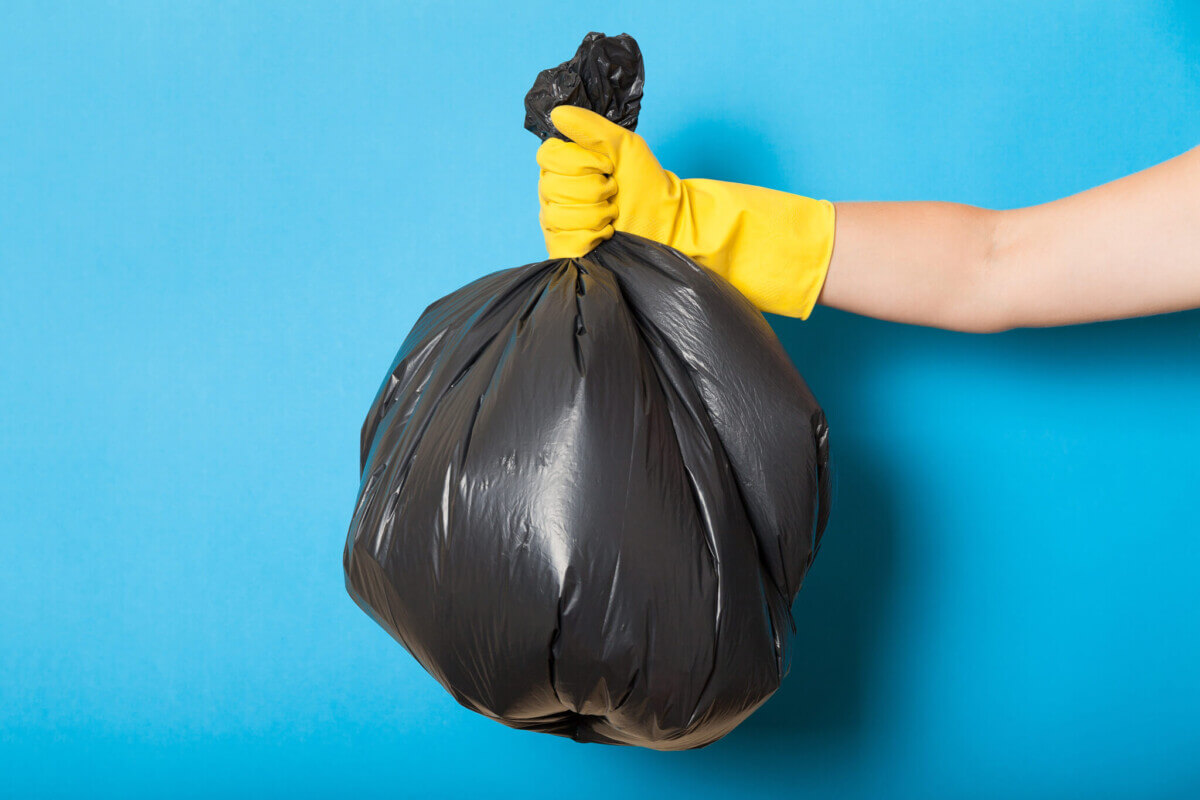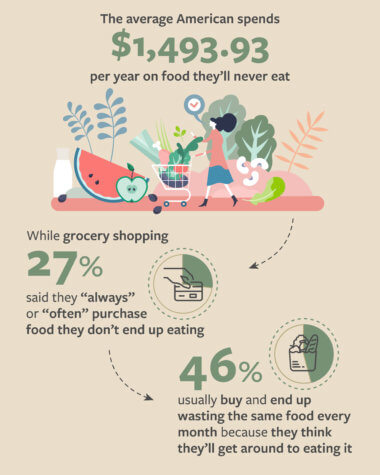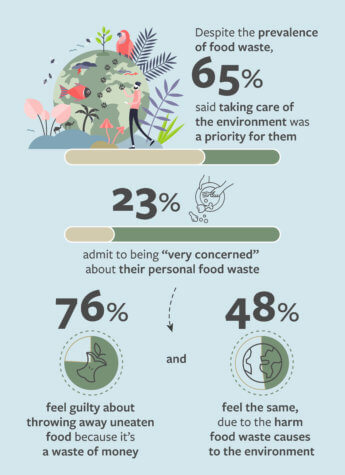
(© Andrii Zastrozhnov - stock.adobe.com)
NEW YORK — How much of your monthly grocery list ends up in the garbage? A new study reveals the average American spends nearly $1,500 per year on food they’ll never eat.
A survey of 2,000 people reveals the average shopper wastes $1,493.93 on food per year. That’s almost a fifth of their grocery bill after every shopping trip (18%). Less than 10 percent of respondents claim they “never” purchase food they don’t end up eating, while almost three in 10 (27%) say this is something they “always” or “often” do.
Is the trick to shop alone?

Half of respondents prefer to head to the grocery store solo, and when they do, they’re more likely to stick to their list (55%) and are less likely to buy food they don’t want or need (36%).
Keeping the list in mind is important, as 38 percent are more likely to let food go bad if it wasn't originally on their shopping list. Six in 10 add they always try to avoid shopping while hungry, as they’re more likely to buy foods they won’t eat when they go to the store on an empty stomach.
Some respondents appear to be in a wasteful cycle when it comes to food waste. Nearly half the poll (46%) usually buy and end up wasting the same food every month because they think they’ll get around to eating it. The same number do this with healthy foods, specifically.
Produce often ends up in the trash

“We can all do better to limit food waste by sticking to grocery lists and, when we get home, prioritizing eating our perishable foods, like fruits, veggies, and dairy products,” says Avocado Co-Founder and CMO Mark Abrials in a statement.
Despite the prevalence of food waste, two-thirds of respondents (65%) say taking care of the environment was a priority for them. Twenty-three percent of respondents admit to being “very concerned” about their personal food waste and another 32 percent are “somewhat concerned.”
Three-quarters (76%) feel guilty about throwing away uneaten food because it’s a waste of money — and 48 percent feel the same, due to the harm food waste causes to the environment.
“When it comes to food waste, nobody is perfect,” Abrials adds. “But in order to consider our environmental impact, not to mention wasted money, we think it’s essential to be thoughtful about everything we purchase — whether that’s food, mattresses or other goods.”










